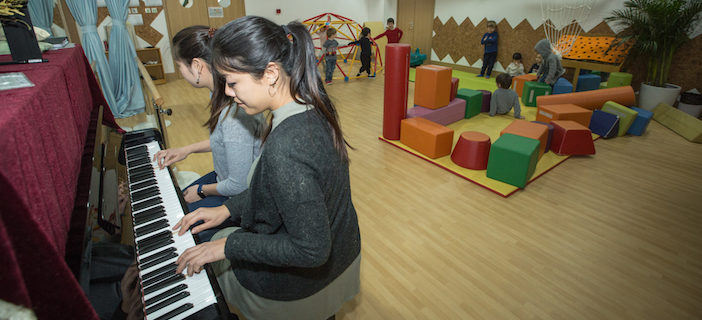Over 100 years ago, in the city of Rome, Maria Montessori created a unique, child-centric approach to learning. Based on her theory that children have a great capacity to absorb information from their surroundings, she developed a new educational system that allowed each child to independently and freely explore learning opportunities created by the teachers, through age-appropriate activities. As a result, children got a healthier, well-rounded start in the early years as opposed to the traditional rote learning approach, which limited critical thinking.
Over the years, the Montessori method soon proved itself and gained popularity all over the world thanks to its famous alumni, which include the likes of Larry Page and Sergei Brin (founders of Google), Jeff Bezos (CEO of Amazon), Jimmy Wales (founder of Wikipedia), Julia Child (acclaimed chef), Gabriel Garcia Marquez (Nobel Prize-winning author), and many others.
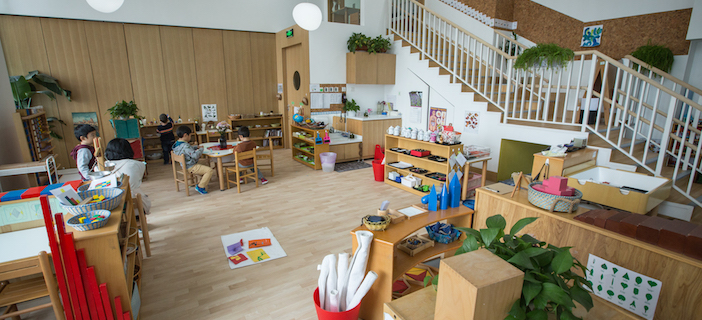
A classroom at AnRic Little Montessori Room
Today, AnRic Little Montessori Room is a distinguished preschool in Beijing that fully embraces the values of Montessori education. Established in 2012, and certified by the American Montessori Society (AMS), AnRic provides exceptional Montessori education to a culturally diverse group of children between the ages of 15 months and 6 years. What makes AnRic an authentic center for Montessori Education? Co-founder Ms. Yinan An took us through the mission and goals of the school, which are deeply interwoven with the ideals that Maria Montessori believed were key to unlocking the true potential of each child.
The primary goal of Montessori education is to foster a child’s natural inclination to learn. The classroom is a carefully and meticulously prepared environment. Children choose what they would like to work on, and they may do so individually or in small groups. “Although there is a structured routine to the day, within the work periods children are encouraged to choose what they want to learn,” said Ms. An. “Decision-making helps them become self-directed learners with a love of knowledge and a true interest in learning.”
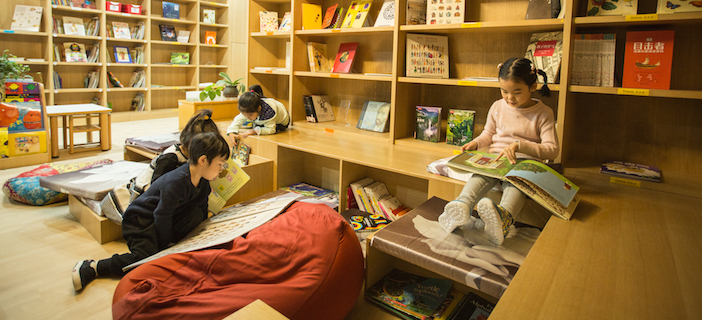
Students at AnRic are encouraged to follow their interests to develop a love of learning
Secondly, developing flexible thinkers is an important goal at AnRic. “Through open-ended questions and various projects, children come to the realization that there may be more than one ‘correct answer’, depending on the situation,” Ms. An explained. “The ability to switch lessons or tasks independently without being told by the teacher also contributes to the development of flexible thinking.”
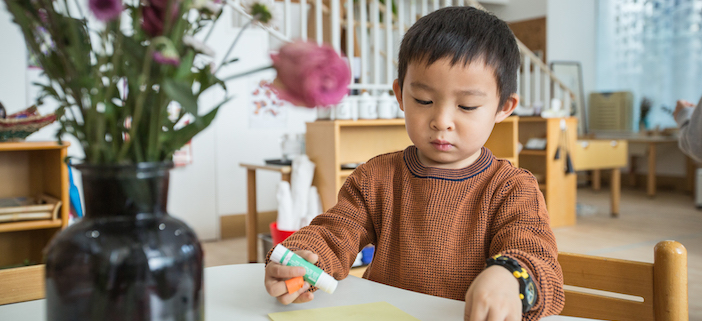
The Montessori method encourages children to choose what they want to learn
The third vital aspect of the Montessori curriculum at AnRic is allowing children to arrive at informed decisions on their own using their innate reasoning skills. Children learn to not fear making mistakes, but instead learn constructively from mistakes made. Teachers at AnRic emphasize self-assessment and self-correction. “When children make mistakes, they also learn to fix the situation on their own. The sense of accomplishment has a greater impact than external praise. It broadens their horizons and they start applying critical thinking to other areas, gradually becoming more confident and creative problem solvers,” Ms. An explained.
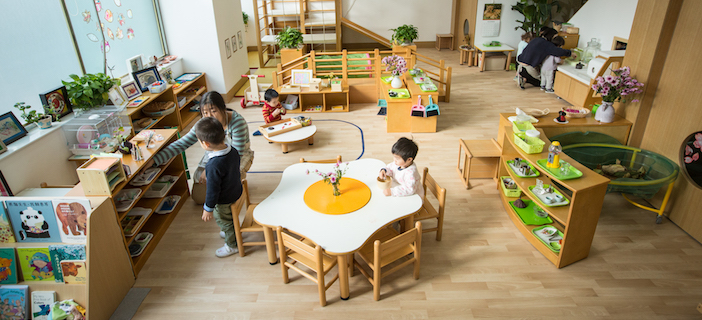
Classrooms at AnRic are carefully planned to encourage flexible thinking and self-directed learning
Fourth, in tune with the Montessori belief that it is the duty of every person to work toward something, AnRic aims to nurture empathetic global citizens. Through displays of concepts such as politeness, mutual respect, kindness, patience, and helpfulness, teachers model positive social behavior to the students, who observe and absorb such habits into their own behaviors so it becomes a part of who they are. Children help and share because they choose to do so, and not because they will receive praise or approval. “Once the children start to recognize that they feel happy when they help a friend, they tend to help out of their accord,” Ms. An added.
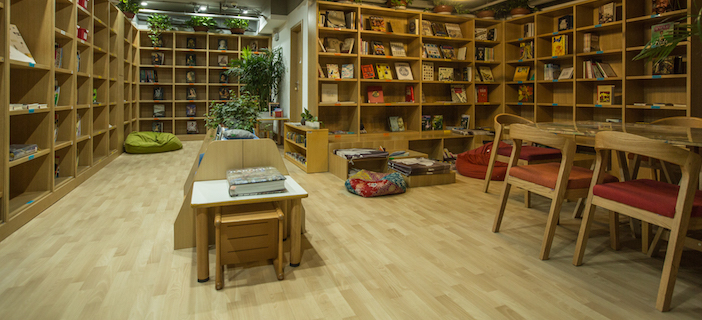
The library at AnRic has books in multiple languages
Lastly, teachers at AnRic strive to develop resilient individuals. Allowing children to independently carry out tasks not only increases confidence but also their willingness to try new things. Both of these factors help the child believe that he or she is capable of bouncing back from disappointments. The ability to collect oneself when facing a problem or challenge is also something that is emphasized at AnRic. Children learn that although someone else can support them if they are upset, they are ultimately responsible for putting themselves back together. “The solution to an emotional outburst is not taking the problem away,” Ms. An mentioned. “We offer support and help the child understand and work through their emotions on their own.”
AnRic incorporates time-tested Montessori values and goals into all of their activities. “The main idea [of the Montessori approach]is to view and respect each child as a unique and independent individual,” emphasized Ms. Jennifer Sau, Lead Teacher at AnRic. She went on to explain how students are allowed the freedom to learn what they are interested in, at their own pace, without the pressure of grades and tests.

Pets help the children learn to take on responsibility
The learning spaces too are thoughtfully crafted to cater to the culturally diverse group of young children as well as children with special needs. Unique learning materials beckon from accessible shelves, inviting little hands to discover new concepts and take on new challenges. Nature adds to the setting, not just in the form of greenery, but also through the inclusion of pets. Ms. Sau explained that the children are offered learning opportunities through a variety of activities in spaces such as the gym, the multilingual library, the yoga room, the music area, and the kitchen.
“They especially enjoy the cooking classes where they follow a menu and are guided to prepare a meal for the whole school,” she said. Ms. Sau and Ms. An then spoke about how learning outcomes such as independent thinking, teamwork, problem-solving, flexible thinking are all met through an activity such as the cooking class.
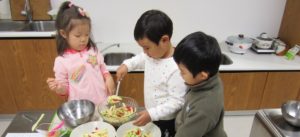
AnRic students preparing snacks for the whole school

The kitchen at AnRic is designed with young chefs in mind
The Montessori approach is based on the fact that Children are innately curious and possess a natural desire to learn. At AnRic, this precious quality is recognized and nurtured through every activity into a passion for lifelong learning. “We follow the Montessori approach in everything that we do but the learning can also occur outside of the school, so we encourage parents to also try and cultivate the same values in the home environment,” Ms. An concluded.

This post is paid for by AnRic Little Montessori Room.
Photos: Uni You, AnRic Little Montessori Room

